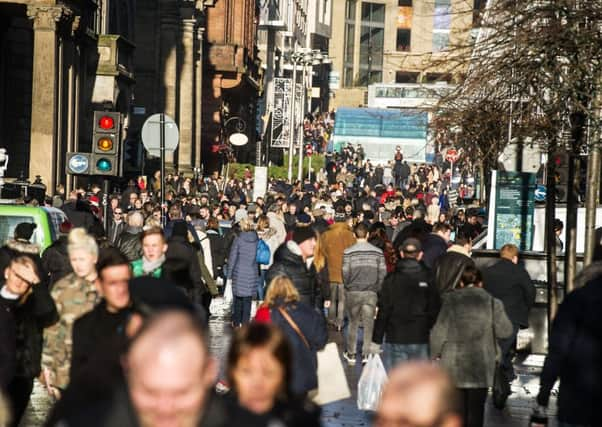Rising inflation and slowing wages to hit households
This article contains affiliate links. We may earn a small commission on items purchased through this article, but that does not affect our editorial judgement.


The Bank nudged its pay growth forecasts lower by just over 0.3 per cent a year on average, leaving workers unable to compensate for a jump in prices through income alone.
Real income, which accounts for tax and inflation, is projected to rise by 0.75 per cent this year, though the quarterly growth rate is expected to flatline.
Advertisement
Hide AdAdvertisement
Hide AdMeanwhile, real income forecasts for 2018 have been slashed from 1 per cent to 0.25 per cent, and from 1 per cent to 0.75 per cent in 2019.
The central bank’s latest inflation report – which outlines its official economic outlook over the next three years – shows that shop prices will rise by 2.7 per cent by the end of the year, peaking at 2.8 per cent in the first half of 2018, before easing slightly to 2.6 per cent at the end of next year and 2.4 per cent in 2019. That is above the Bank of England’s 2 per cent target.
It follows a significant weakening in the pound, which has fallen nearly 18 per cent against the US dollar and 10 per cent against the euro since the Brexit referendum, increasing the cost of imports.
However, the interest rate-setting monetary policy committee (MPC) said consumers will keep up spending patterns a bit longer despite the strain on income. This will force shoppers to dip into cash that would otherwise be earmarked for long-term savings.
The MPC is now accounting for “a significant fall in the saving ratio over the next three years as consumers take time to adjust spending growth to weaker income flows”. The UK savings rate is expected to drop towards 4 per cent as a result.
While the Bank predicts a slight fall in gas prices during the first three months of the year, electricity costs are expected to rise in the second quarter of 2017.
When stripping out fuel costs, the annual growth in import prices is expected to reach nearly 5 per cent by the third quarter.
Advertisement
Hide AdAdvertisement
Hide AdBritish households are likely to be squeezed further by retailers, who have so far mitigated the fall in sterling through hedging practices that include buying foreign currencies such as dollars in advance.
Those businesses are likely to raise prices as those positions expire over the coming months, piling price pressures on UK spenders.
